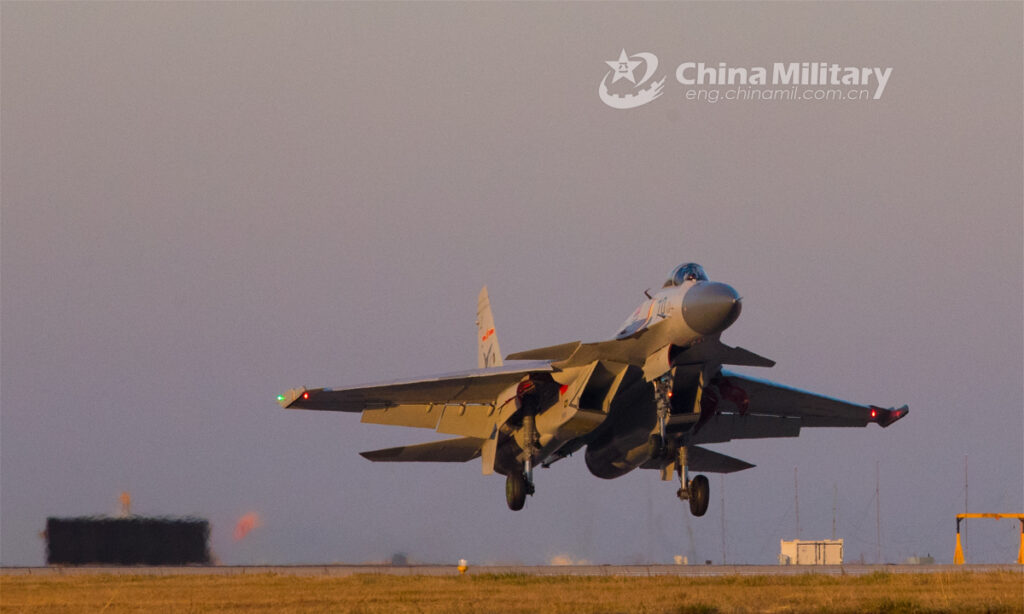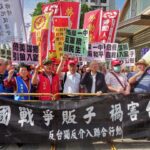A YU-20 tanker aircraft of the Chinese People’s Liberation Army (PLA) Air Force and a J-15 carrier-based fighter jet of the PLA Navy have conducted their first in-flight refueling exercise. Experts said on Wednesday that this exercise has displayed the systematic integration among different PLA services and will enhance the capabilities of Chinese aircraft carriers.
The undated exercise was revealed for the first time in a documentary program jointly produced by the Political Work Department of the Central Military Commission, China Media Group and the Office of the Central Cyberspace Affairs Commission. The program was aired on Tuesday in celebration of China’s Army Day.
During their first in-flight refueling exercise, a J-15 fighter jet accurately connected its refuel probe to a YU-20 aerial tanker’s drogue, as shown in the documentary, which did not give the location of the exercise other than showing that it took place over the sea.
It was a convergence of different theoretical systems and a cooperation between different combat platforms, the program said.
Previously, the YU-20 aerial tanker of the PLA Air Force had only been known to provide aerial refueling to other air force aircraft including J-10C, J-16 and J-20 fighter jets, while the J-15 carrier-based fighter jet of the PLA Navy was only revealed to have conducted buddy refueling, which means converting a J-15 fighter jet into a tanker by equipping it with an aerial refueling pod.
The latest exercise demonstrated the PLA’s systematic integration, as different military services can coordinate and share each other’s resources to reach the goal of winning in combat, Wang Ya’nan, the chief editor of the Beijing-based Aerospace Knowledge magazine, told the Global Times on Wednesday.
Compared with buddy refueling, dedicated land-based large tanker aircraft can carry much more fuel and do not occupy precious carrier-based fighter jets and resources on aircraft carriers, Wang said.
The YU-20 itself has a very long range, so it can provide refueling services to carrier-based aircraft and support them in complex long-range, long-endurance missions, and maximize the potential of aircraft carrier groups, Wang said.
PLA Navy aircraft carriers, including the Liaoning and the Shandong, frequently carry out far sea exercises beyond the first island chain in the West Pacific, sometimes in waters to the east of the island of Taiwan, from which they can surround the “Taiwan independence” secessionist forces and block external interference forces, according to media reports.
The defense authority on the island of Taiwan has also reported on several occasions when YU-20 tanker aircraft were spotted flying to the east side of the island during the PLA’s routine exercises and patrols in the region.
(Global Times)




